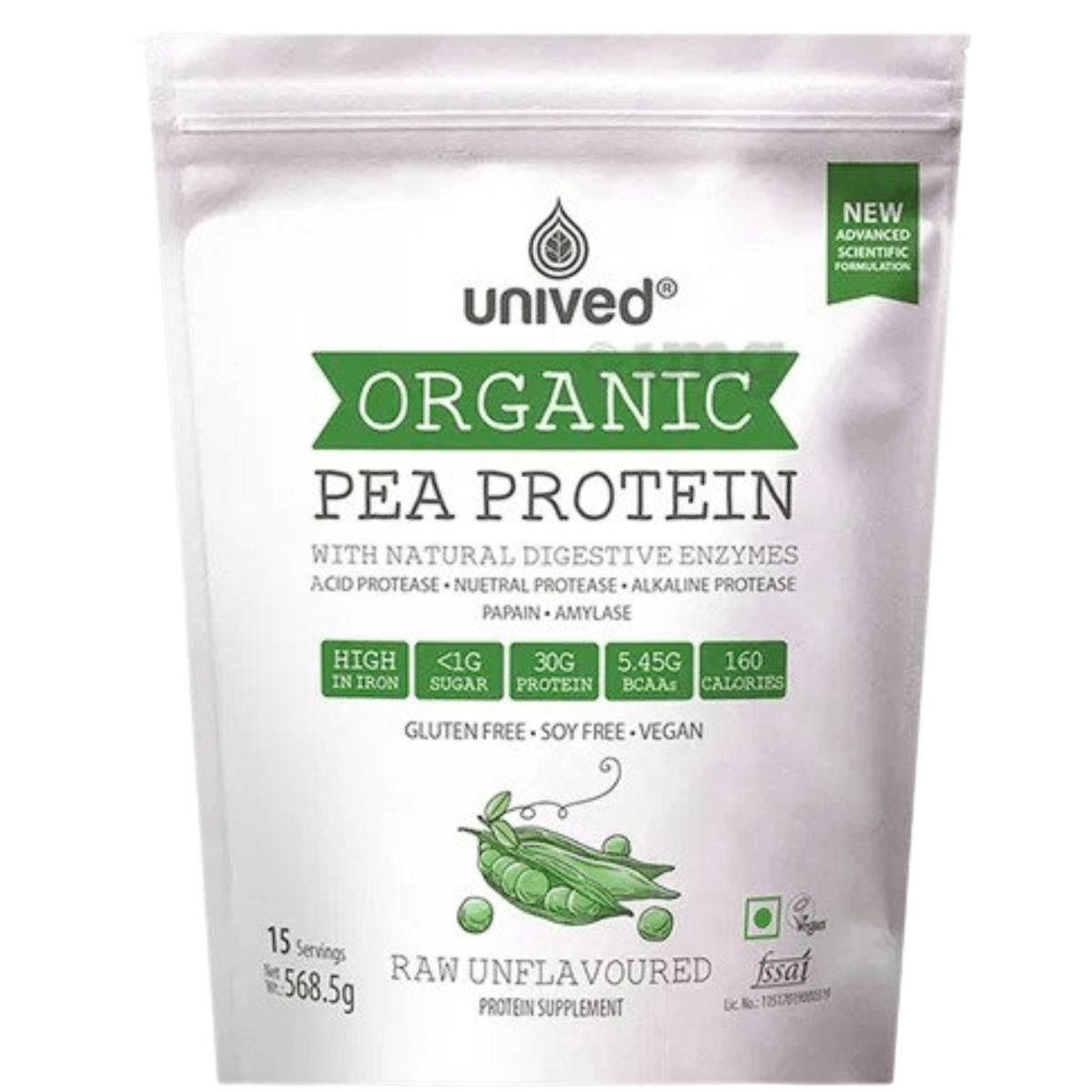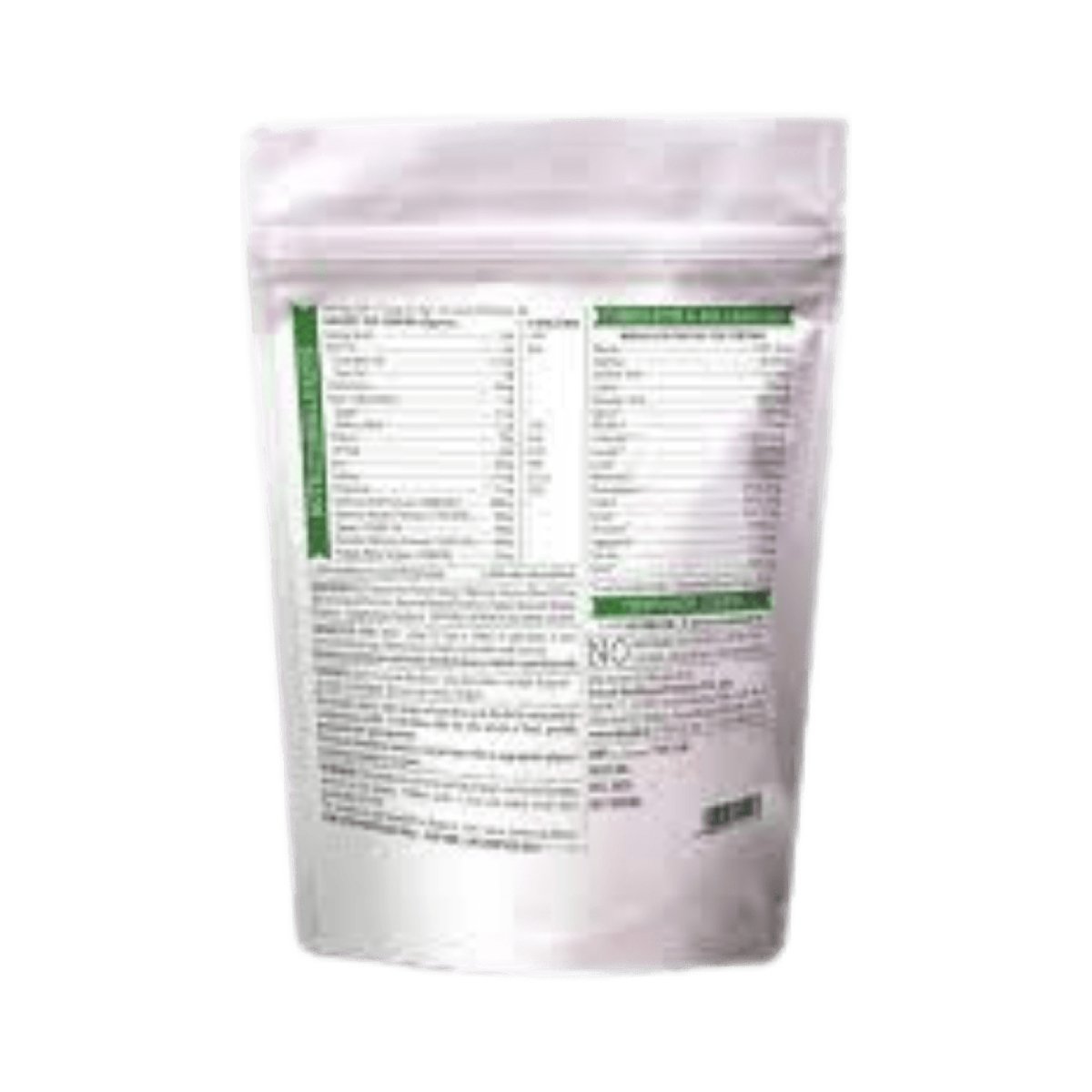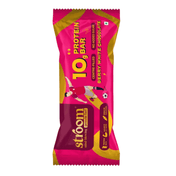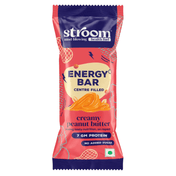Fuel Your Body with Clean Plant-Based Protein
Looking for a natural and effective way to fuel your body for optimal performance? Introducing Unived Organic Pea Protein, the clean, plant-based protein source that athletes and fitness enthusiasts swear by. Made from 100% organic peas, this vegan protein powder is the perfect addition to your active lifestyle.
The Power of Complete Protein
Unived Organic Pea Protein is packed with essential and non-essential amino acids, including 5.45g of natural BCAAs per serving. This means you get the perfect muscle-building support to crush your workouts and promote faster muscle recovery. With a high PDCAAS score of 0.93, you can be confident you're getting top-quality nutrition with every scoop.
Easy on Your Stomach, High on Digestibility
Say goodbye to digestive discomfort with Unived Organic Pea Protein. With a remarkable digestibility rate of 98%, it's gentle on your stomach, making it an ideal choice for those with lactose intolerance or sensitive stomachs. Plus, the addition of natural digestive enzymes ensures smooth digestion and absorption of nutrients.
Nourish Your Muscles, Support Your Heart
Give your muscles the love they deserve with Unived Organic Pea Protein. It's rich in arginine, an essential amino acid that promotes muscle recovery and performance. Plus, it's heart-friendly, with low saturated fat content and zero cholesterol, keeping your heart healthy as you push your limits.
Clean, Pure, and Sustainable
Unived Organic Pea Protein is not just good for you, but also for the planet. It's sustainably sourced from organic peas, with minimal processing to preserve its nutritional value. This vegan and GMO-free protein powder is your ethical choice for a compassionate lifestyle.
Versatile and Delicious
Unleash your culinary creativity with Unived Organic Pea Protein. It's not just for smoothies – you can bake, cook, and blend it into delicious recipes! From post-workout shakes to wholesome protein-packed treats, the possibilities are endless.
Key Benefits
- 30gram plant based organic pea protein with digestive enzymes from bacterial, fungal and plant sources.
- 5.45g of Natural Occurring BCAAs per serving & complete amino acid profile
- 8.8% of arginine per serving – the highest among all protein sources, including whey protein.
- Helps gain lean muscle mass, decrease muscle damage, boost recovery, and helps enhance energy and stamina.
- Easy on digestion, gut friendly, & hypoallergenic.
Usage Directions
Suggested Use of Unived Organic Pea Protein
Mix one scoop in water or a beverage of your choice. Consume post workouts.
Usage Guide
Weight Training Benefits
Unived Organic Pea Protein is effective if you want to gain lean muscles mass and decrease muscle damage. It helps enhance your energy and stamina, which aids you to workout for long hours at the gym. With 30 grams of pea protein isolate, it helps in the synthesis of muscle protein. This speeds up the muscle recovery process. Unived Organic Pea Protein also increases the supply of blood to the muscle tissues, which in turn increases the transport of nutrients to the muscles, aiding in the fast recovery of muscles. The balanced and complete amino acid profile of Unived Organic Pea Protein gets absorbed into the muscle cells quickly and provides you with the immense benefits of pea protein.
Endurance Athletes
Unived Organic Pea Protein is especially recommended for endurance athletes to maintain, repair, and grow lean muscle mass, as well as, support immune system function. Endurance athletes with low dietary protein increases recovery time between workouts, causes muscle weakness, and suppress the immune system. Protein deficiency will make your training obsolete leaving you susceptible to fatigue, muscle soreness, lethargy, and other severe disorders. Incorporating a high-quality protein supplement to your training arsenal, provides the essential and non-essential amino acids required to reduce tissue cannibalization. With the consumption of Unived Organic Pea Protein you will increase lean muscle mass, reduce muscle damage, improve endurance levels, and reduce recovery time without sacrificing your hard work during training.
Anyone, not just Vegans & Vegetarians
While Unived Organic Pea Protein powder is especially beneficial for athletes, it is also ideal for anyone looking to supplement their diet with a high-quality protein to meet their daily intake requirements.
Unived Organic Pea Protein provides plant-based vegan pea protein isolate that is superior to the protein found in common vegetables and it is a highly nutritious source for individuals with exclusionary diets like vegans and vegetarians, to ensure that they meet their recommended dietary intake of protein. Individuals with lactose intolerance and soy allergies can benefit from Unived Organic Pea Protein, as it is free of major allergens. Regular consumption of Unived Organic Pea Protein is beneficial for anyone who wants to raise the nutritional heft of their diet.
Suggested Use
Unived Organic Pea Protein can be taken at any time during the day. You can simply put in a shaker, make a smoothie with it, or bake some baked goodies with it.
For athletes or gym junkies, it is suggested to take at least one serving of Unived Organic Pea Protein within 45 minutes post your workout and another serving before bedtime. For endurance athletes, Unived Organic Pea Protein can be taken in conjunction with RRUNN Post Complete System Recovery.
Unlike conventional whey supplements and other plant-based proteins, Unived Organic Pea Protein is completely free of synthetic or natural emulsifiers and thickeners. For a smoother shake, we recommend using a blender; however, a shaker will also work just fine.
To make one serving of Unived Organic Pea Protein, add one scoopful to 500 ml of cold water or your favourite nut milk in a blender or shaker, and blend/shake until you get a rich, smooth and delicious shake.
Intake Guidelines
The recommended dietary intake of protein depends on factors like weight, the level of physical activity, and the nutritional goal in mind. For e.g. the protein intake of an athlete training for a demanding sporting event will be greater than that of a sedentary individual. Unived Organic Pea Protein can be be consumed at any time of the day, the best time to have it within 45 minutes post workout. However, it can be had before exercising and before bed.
How much to take?
As a basic guideline, we recommend that adults should consume 1-1.2 grams of protein per kilogram of body weight to meet their dietary requirements of protein.
Physically active adults and athletes should consume 1.5-1.8 grams of protein per kilogram of body weight to sustain their training and meet their elevated protein needs[9].
We recommend consuming a minimum of one serving of Unived Organic Pea Protein per day, although, you may take upto 3-4 servings if desired.
Ingredients
Ingredients Per Serving in Unived Organic Pea Protein
Organic Pea Protein 37.5g (30g protein), Enzyme Blend 365mg (Acid Protease, Neutral Protease, Alkaline Protease, Papain, Amylase)
Serving Size
One Scoop - 37.9g
Safety
Unived Organic Pea Protein strictly adheres to WADA (World Anti-Doping Agency) guidelines, and does not contain any banned substances. However, please note that WADA does not offer any certification, or confirmation (written or otherwise) of the same.
Disclaimer
Note: Pea protein as such does not taste as great. One cannot compare this to Whey protein and/or expect any pea protein product to taste like Whey. If you are big on taste and cannot do without the regular high-sugar rich chocolate taste – then this product may not be for you. If you are looking for a superior product, a clean product, and are more concerned about getting your 30 grams of protein from a sustainable and clean source, and if you can accept a small compromise in taste – then this is just the product for you. It does NOT taste ‘bad’ – but it does take some getting used to.







